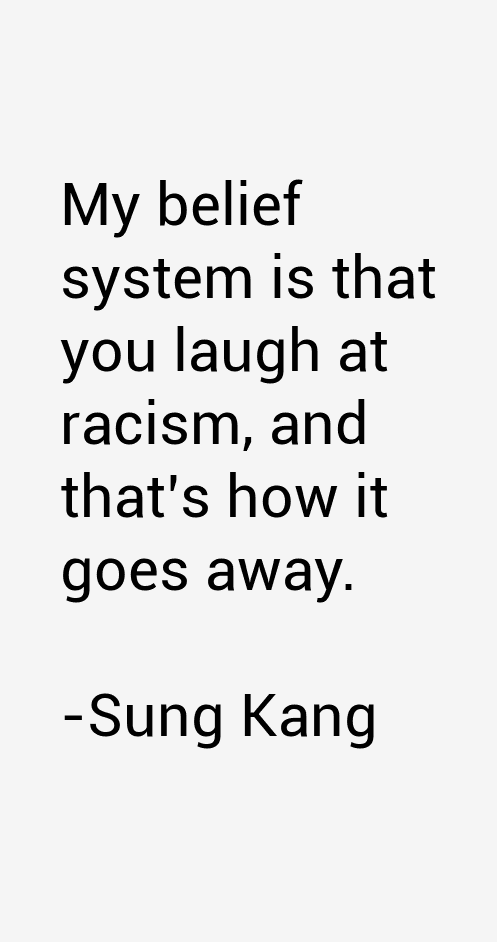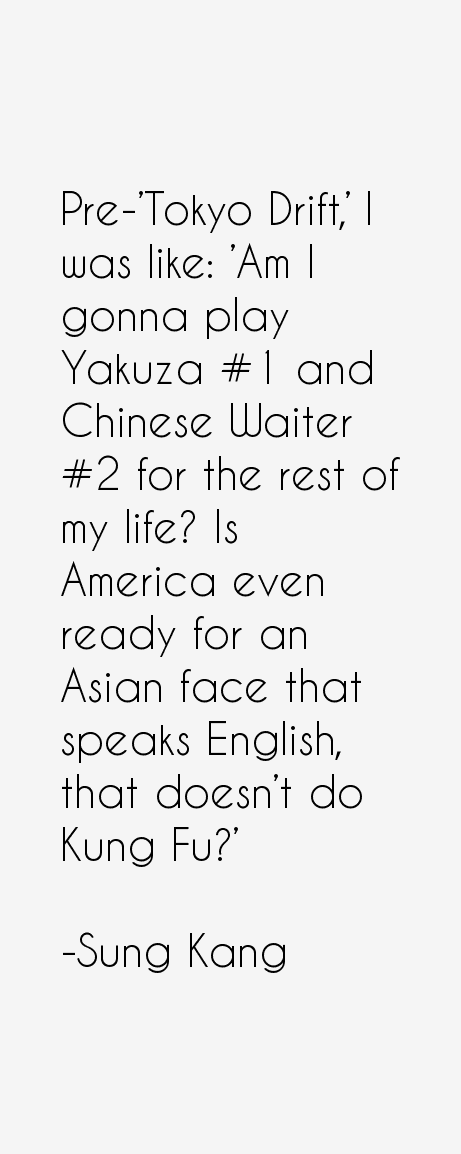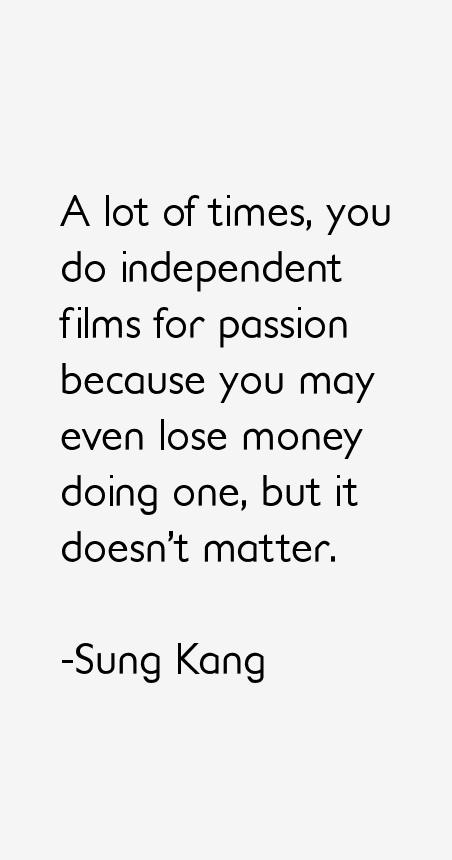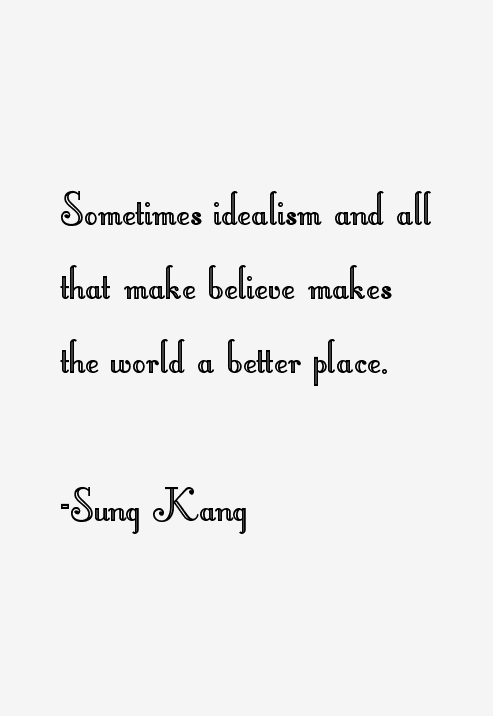Sung Kang Quotes & Sayings
14 most famous Sung Kang quotes and sayings. These are the first 10 quotes we have for him. He's a 53 year old American actor born on Apr 8, 1972.
“When I started acting, I hoped I could make some kind of positive contribution to this world. When I get a letter from some kid in Nebraska saying that, prior to Han, nobody wanted to be his friend because Asians weren't cool if they weren't into martial arts - Now he's accepted and recognized as a human being. That's pretty awesome, right?”

“My belief system is that you laugh at racism, and that's how it goes away.”
“When I did 'Tokyo Drift,' a lot of the philosophy that Han lived by I have actually gone through in my own life. As I got older, I realized that I really believe in those philosophies, like the importance of family.”
“I've produced before, and sometimes it's by default. In the indie level, you can't just come to set and be like, 'Oh, I'm an actor.' You have to be willing to help out, make the project happen.”

“Pre-'Tokyo Drift,' I was like: 'Am I gonna play Yakuza #1 and Chinese Waiter #2 for the rest of my life? Is America even ready for an Asian face that speaks English, that doesn't do Kung Fu?'”

“A lot of times, you do independent films for passion because you may even lose money doing one, but it doesn't matter.”

“Sometimes idealism and all that make believe makes the world a better place.”
“Prior to 'Tokyo Drift,' the iconic perception of Asians in Hollywood films has been either the Kung Fu guy, the Yakuza guy or some technical genius. It used to be such a joke, to be laughed at rather than with.”
“Because of economics, you have to feed the demographics that are buying your product. So, as Asia becomes a much more economic influence on the products that are being made from America, I think people have to be sensitive.”
“I think when we shot 'Tokyo Drift' I was a little too young to really understand what made Han who he is, and then I got older, and you start to make a little bit of money, and you realize that money will never buy you happiness.”
Sung Kang Quotes Rating
No Ratings Yet
Leave A Comment
























